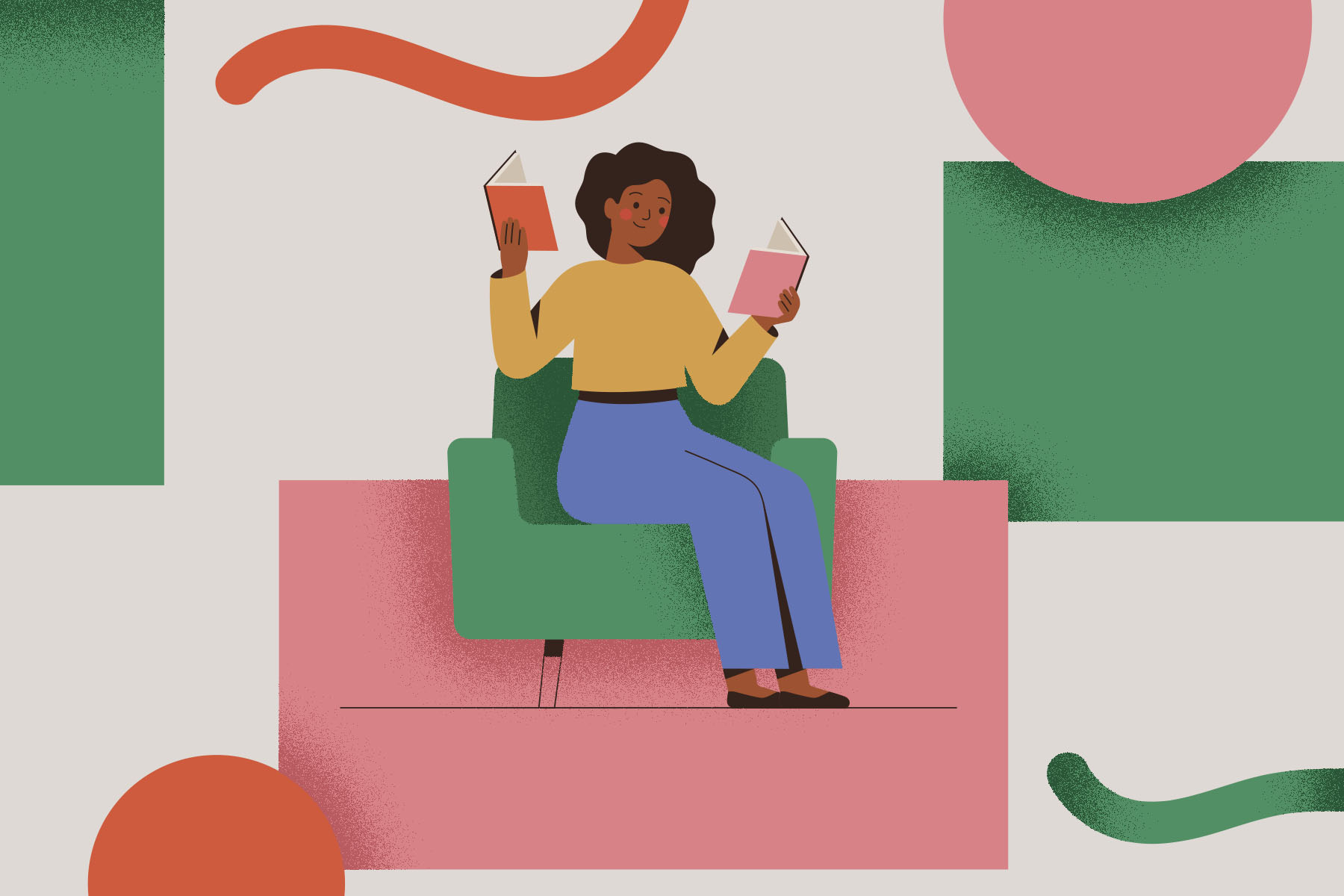- Home |
- Search Results |
- How to be a better non-fiction reader

A good non-fiction book can broaden your horizons and challenge your perceptions. It can also, though, end up lingering on your bedside table under the pacey thriller you picked up at an intricate moment.
We’ve all been guilty of abandoning a dense – if mentally invigorating – non-fiction read, and we’ve all clamoured for an important fact that changed how we see the world, then vanished from our memories at the crucial moment.
So we spoke to experts in reading non-fiction – editors who commission and edit non-fiction books – from across Penguin Random House to learn the best way to take it all in.
Know that there’s a non-fiction book for everybody
"I think I was originally intimidated by nonfiction for a lot of reasons," says Sam Crisp, who works at Ebury commissioning books such as Jane’s Patisserie . "But there’s such a breadth out there: you don’t have to just go for serious, intimidating reads. There are more accessible lifestyle books, for example cookery books. In the same way that people have different learning styles, it’s the same for reading – you just have to feel that out yourself."
Don’t think you have to read it all in one go
Sam says that this approach applies to more lifestyle-orientated non-fiction too, such as cookery books or those written with wellbeing in mind: "It's meant to be a support for specific things, so you can kind of dip in and out depending on what you need at that time."
Don’t worry about all the details
"The thing is, you put so much pressure on yourself to remember everything while you're reading it and it makes it such a slog," says Sharika Teelwah, an editor at Transworld working on titles including Lawrence Chaney’s Drag Queen of Scots. "So my number one tip is to not get bogged down in actively trying to remember every single fact you come across. I think the purpose of nonfiction is about getting a feel for whatever you're learning about, rather than getting your stats together at the dinner table."
"You won’t remember everything you’re reading, and that doesn’t matter,” adds Simon Winder, Publishing Director of Penguin Press. "You will be struck by three or four things, which you will then tell other people, which will stick with you forever."
Take notes – but don’t be afraid to use your phone
"Quite often I’ll have a note page on my phone and I'll jot stuff down to come back to later," says Sam. "That's quite a nice way of doing it, definitely." Sharika also uses her phone. "I used to try and start out with a notebook, but then it felt a bit weirdly like I was preparing for an essay or something. But your phone's always there. I always have a different note for each book; when you get to the end of the book, you can find that page again easily. It’s a more chill way of having your own set of mini-references."
It’s ok to skim…
"You can skim non-fiction because you don’t have to take in the details the same way you do with fiction – you’re not going to get a spoiler, or ruin the ending," says Sharika. "So don’t be afraid to just read the bits that make you excited."
…and ignore the footnotes
"Just pay no attention to things like the footnotes," says Simon. "Don't worry about them. They're there because the author needs to put them there so that other people can follow up on it. But for the reader, it’s important not to care."
Sometimes it will just take a long time to read – and it’ll be worth it
"If you've got a 500-page work of non-fiction, it might take two or three weeks to read, but then you really you feel your mind has shifted to a different place as a result," says Simon. "You will see the world differently. You will be looking with renewed interest at your surroundings as a result of these books. And if that takes quite a long time, it just allowing for more thinking."
Don’t be afraid to go deeper
"Go into the end notes and see what the person who wrote the book read to get all that information. Then you can just keep going deep into whatever niche you’re interested in," says Sharika. "If you’ve found yourself really interested in a subject you can see what else is out there – perhaps follow the author on Instagram and see if they have any other books, or who they’re engaging or reposting. It can allow you to learn more about that subject," adds Sam.
Have a fiction book on the go at the same time
"With a novel and a nonfiction book I feel that you wear different hats,” says Simon. “I'll always have a non-fiction and fiction book on the go at the sane time. Whenever if you're fed up with one you can turn to the other."
What did you think of this article? Email editor@penguinrandomhouse.co.uk and let us know.